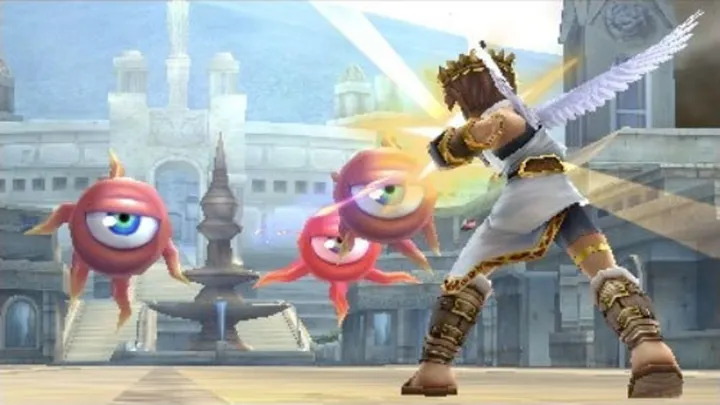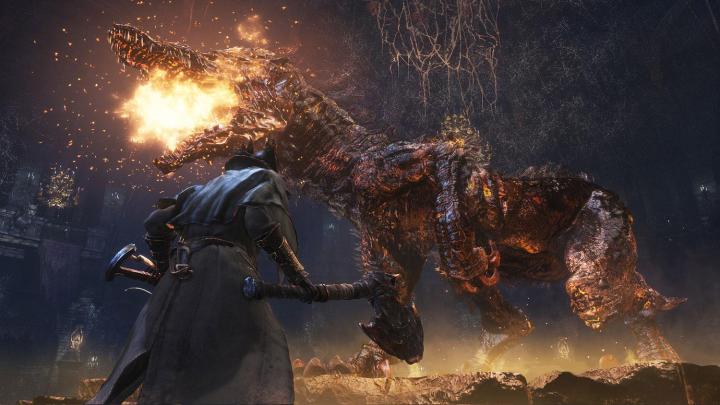With game development costs climbing and publishers always looking for the next big hit, it’s rare that a successful game is a one-and-done affair. Far more often, the best games are turned into long-running series, with sequels and spinoff games aplenty. When that doesn’t happen, it’s unusual, and it can be either because the game’s sales didn’t match its reviews, or its creators simply weren’t interested in making another game. For the best games that never got sequels, Digital Trends looked at games that were not turned into franchises, as well as games that were the last in their series with no sign of return.
Further reading
Second Sight

Free Radical Design is best known for the TimeSplitters games, but the studio’s underrated psychological thriller just might be its best work. Second Sight is a third-person action game with telekinesis and psychic abilities, set partially in an asylum and partially in a remote research facility. Hero John Vattic isn’t a one-man wrecking crew, with a level of vulnerability that makes every choice important — whether it be sneaking by enemies or launching objects at their heads.
Second Sight flew under the radar, possibly because it released so close to the similar Psi-Ops: The Mindgate Conspiracy, but it’s the more interesting game of the two. Told in non-linear order, its story features several huge twists that completely turn the game’s events on their head, and it’s worth seeing to the end.
Sunset Overdrive

Insomniac Games has very few bad games in its library, and almost all of them end up successful. Ratchet & Clank remains popular and after Marvel’s Spider-Man, Sony even opted to purchase the studio outright. Before this, however, Insomniac created the excellent third-person action game Sunset Overdrive for Xbox One, blending its previous shooter experience with platforming and Tony Hawk grinding for something wholly unique.
Sunset Overdrive‘s Xbox One exclusivity during a very rough period for the console likely hurt its sales, despite the game’s critical praise. Sony has said in an interview that it isn’t prioritizing the series going forward, but it did release on PC eventually.
Read our full Sunset Overdrive review
Kid Icarus: Uprising

The Super Smash Bros. franchise has kept designer Masahiro Sakurai remarkably busy over the years. One outside game he did take time to develop was Kid Icarus: Uprising in 2012. The third-person and rail-based shooter felt like fantasy Star Fox, with full voice acting and fourth-wall-breaking humor. Online competitive multiplayer and charming characters made it seem like Nintendo’s next big franchise, and a big step up from the original NES and Game Boy versions.
Super Smash Bros. fans cannot be satisfied, however, and Sakurai returned to the fighting series with Super Smash Bros. for Nintendo 3DS, Super Smash Bros. for Wii U and Super Smash Bros. Utlimate. An Uprising sequel has already been ruled out, as has a modern port. Pit will likely only live on in Smash Bros. now.
Read our full Kid Icarus: Uprising review
Bloodborne

One of the best games FromSoftware has ever made, Bloodborne took the Dark Souls formula and made it faster, ditching heavy armor and shields for saw cleavers and pistols. Its gothic Victorian architecture and Lovecraft-inspired enemies felt distinct from the Souls series, as did its more agile combat and horror elements. But with the game and its sole expansion released, Bloodborne was put aside in favor of Dark Souls 3 and Sekiro: Shadows Die Twice.
Perhaps Sony and FromSoftware have plans for a sequel on PlayStation 5, but the five-year wait since Bloodborne launched has only gotten more difficult. The game’s creepy universe is ripe for exploration and expansion, and there are sure to be plenty of terrifying monster designs floating inside director Hidetaka Miyazaki’s head.
Read our full Bloodborne review
DmC: Devil May Cry

Yes, the Devil May Cry series as a whole did return in 2019 with the phenomenal Devil May Cry 5, but its reimagining DmC: Devil May Cry underperformed when it launched six years earlier. The game ditched the first four games’ storylines and canon in favor of a darker They Live tale that viewed corporations and right-wing news outlets as covers for demons. It kept the series’ classic combat, but improved the camera and streamlined the weapons.
Did DmC take the series too far from its roots? Quite possibly, as its version of Dante was less corny and self-deprecating, but it was still one of the most impressive action games of the Xbox 360 and PlayStation 3 era. With a cliffhanger ending improved through a DLC episode, the game is dying for a full sequel.
Read our full DmC: Devil May Cry review
Advance Wars: Days of Ruin

Nintendo has no shortage of tactical role-playing games because of the resurgent Fire Emblem series. However, it has been well over a decade since Advance Wars: Days of Ruin and there is no sign of a sequel. The military-themed turn-based game scratched a different itch than Fire Emblem, putting attention more on battle tactics than individual characters. The darker tone of Days of Ruin in particular received a mixed reception, which may have had something to do with the series’ hiatus.
In the meantime, successors have begun popping up. Tiny Metal was one of the first to carry the mantle, and the fantasy-themed Wargroove built on Advance Wars’ mechanics in 2019. Still, nothing can compare to Nintendo’s own games.
L.A. Noire

L.A. Noire was one of the most groundbreaking adventure games ever made when it launched in 2011. Oddly, it has stayed mostly uncopied in the years that followed. The game’s investigation and interrogation systems trusted players to spot important clues through facial expressions and environmental details, and these moments were punctuated by intense action. Only a virtual reality-exclusive version that bundled together a few missions would follow.
The chances of a sequel are very low. Developer Team Bondi closed months after the game’s launch, and its next project was canceled after publishers pulled out. It would likely be up to publisher Rockstar Games to develop a follow-up, if one were ever made.
Read our full L.A. Noire review
Freedom Fighters

Long before Homefront, there was Freedom Fighters, developed by Hitman studio IO Interactive. Set in an alternate history where the Soviet Union invaded the United States, the game focused on guerilla warfare and underground tactics to overwhelm the occupying force. As players progressed and completed missions, they could recruit more resistance fighters and further drive the communists from New York City.
Though a planned sequel never emerged, there is a slight chance IO Interactive eventually brings back Freedom Fighters. After it split from Square Enix, it took the rights to the IP, though the success of the recent Hitman games mean it could be years for the sequel to release.
Chrono Cross

There have been dozens of Final Fantasy games released over the years, but only three Chrono games, and only two of those released outside Japan. It’s an injustice, as those two games are both excellent. Chrono Trigger stands as one of the best — if not the best — role-playing games of all time, and its PlayStation successor Chrono Cross builds on its timeline-hopping gameplay and Techs system.
Chrono has never had the same name recognition of Final Fantasy, and with no new game in 20 years, it’s very unlikely there will ever be a sequel. A third game called Chrono Break was actually planned, with its ideas being moved into Final Fantasy Dimensions II after it was ultimately canceled.
Jade Empire

BioWare is most famous for the Mass Effect series, Baldur’s Gate, and Star Wars: Knights of the Old Republic, but it developed the Xbox-exclusive Jade Empire just before the Xbox 360 released. The Chinese-influenced action-fantasy game also featured a binary morality system called “Way of the Open Palm” and “Way of the Closed Fist,” building on the light side and dark side of Star Wars and setting the state for Paragon and Renegade in Mass Effect.
Perhaps because it released so late in the original Xbox’s life, Jade Empire‘s sales were disappointing. BioWare’s later successes with Mass Effect and Dragon Age mean a sequel isn’t likely, but its core gameplay and storytelling are as good as anything the studio has ever done.


